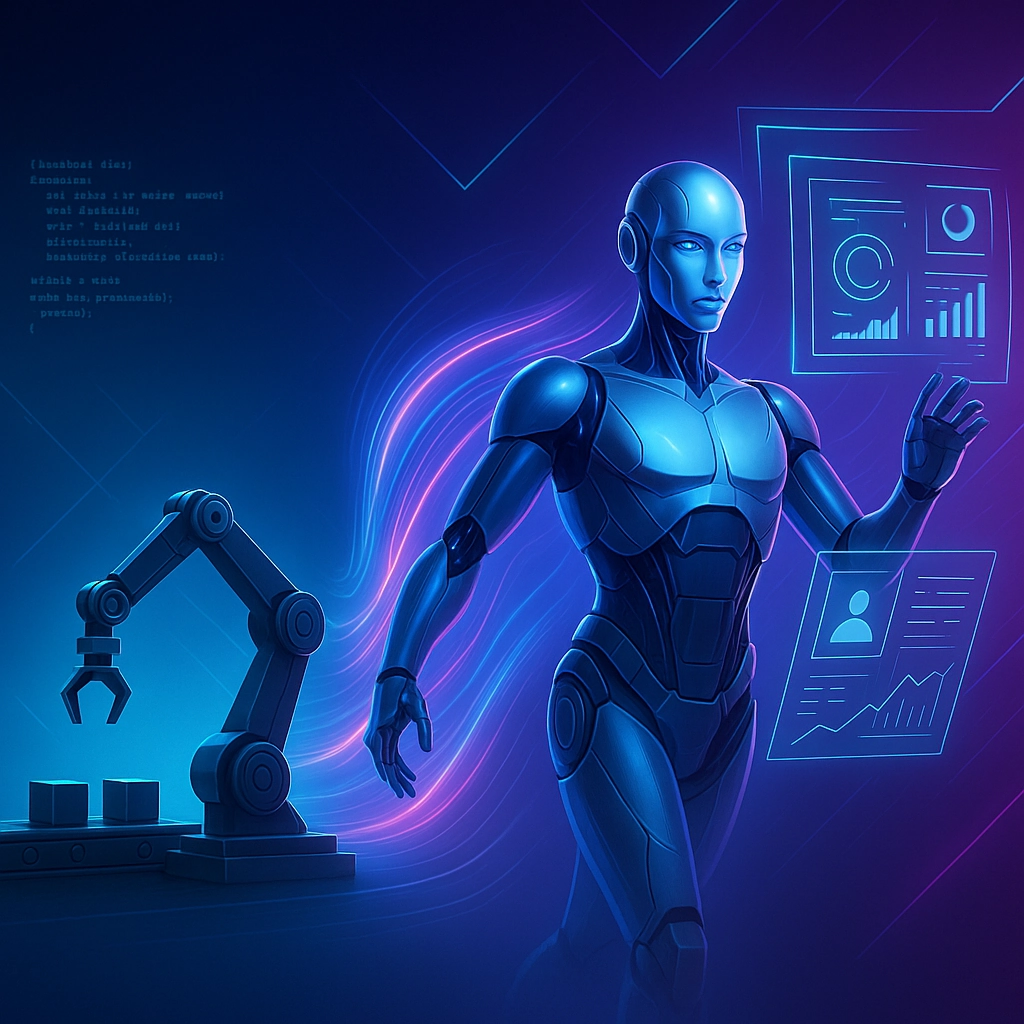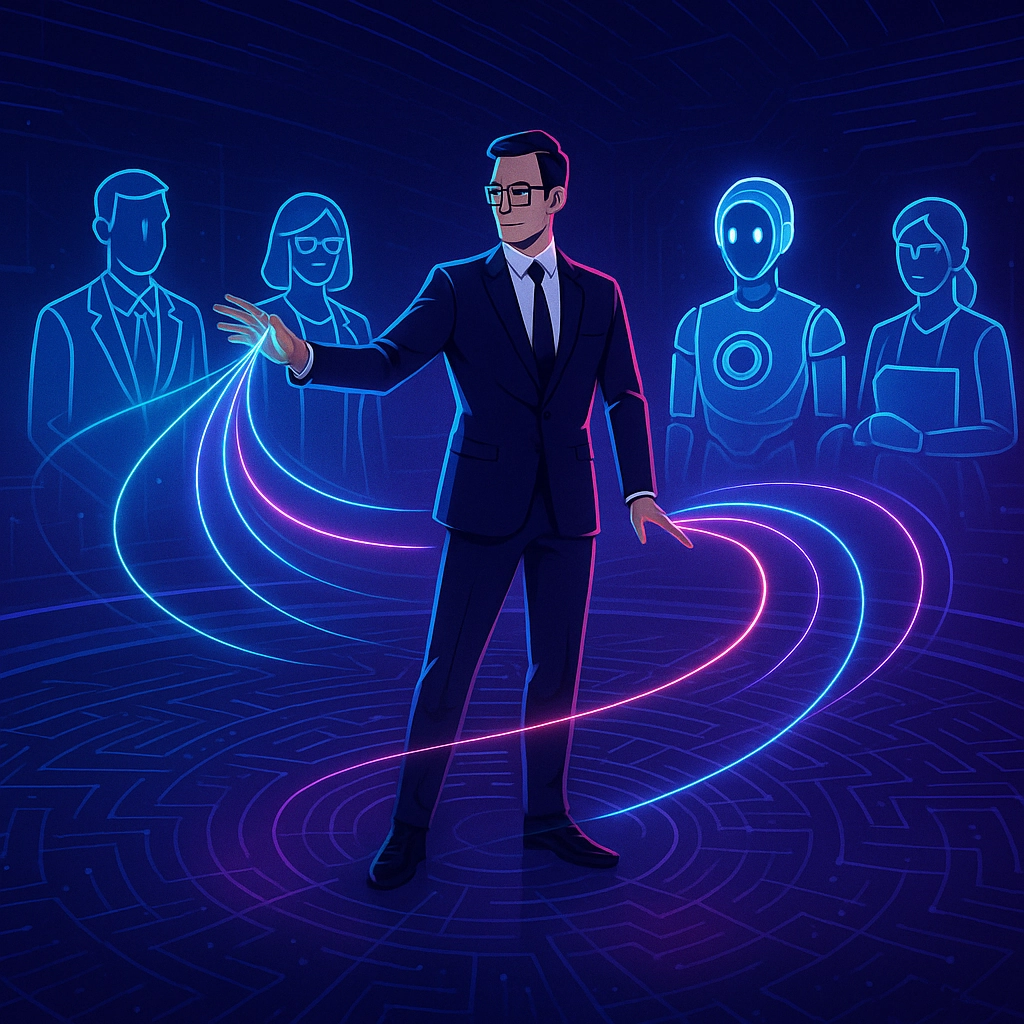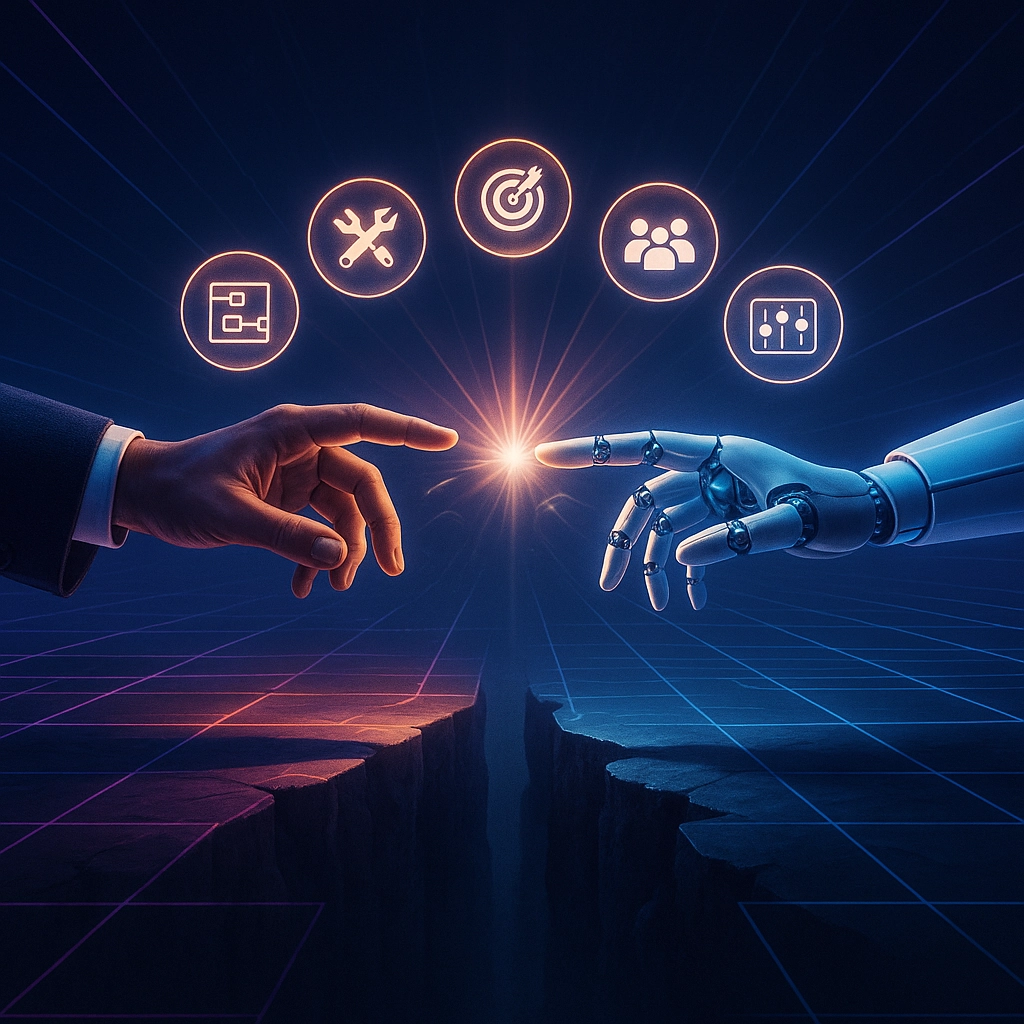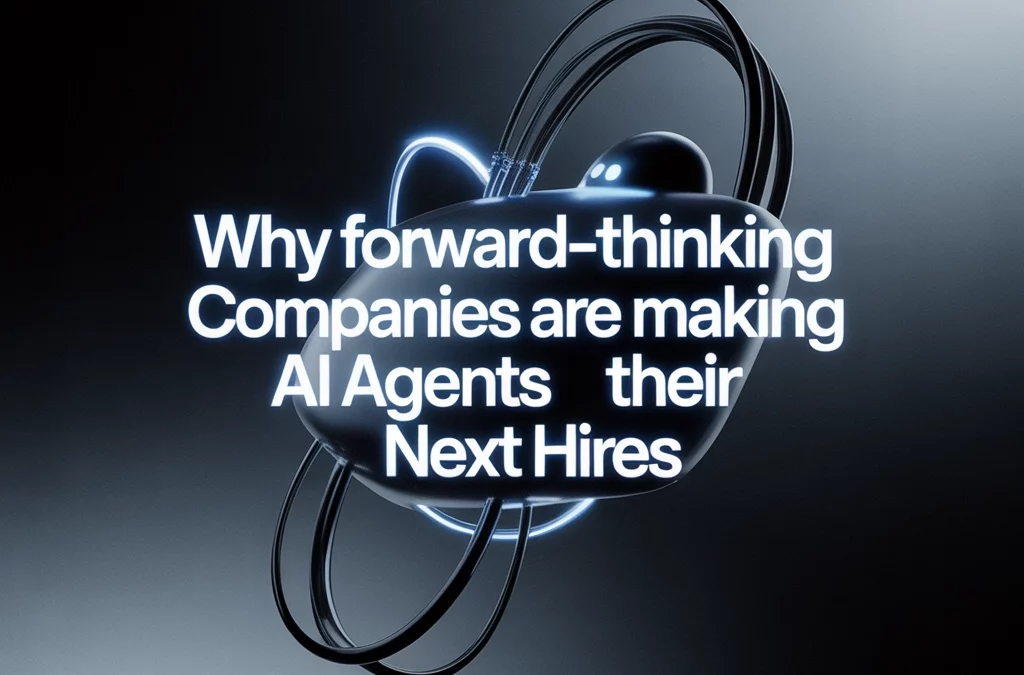In today's rapidly evolving business landscape, there's a quiet revolution happening in workplaces across the globe. Companies aren't just hiring human talent anymore—they're bringing on AI agents as integral team members. This isn't science fiction; it's the new frontier of work.
At Velocity AI, we've been tracking this shift closely, and the data is clear: forward-thinking organizations are increasingly viewing AI agents not just as tools but as digital employees with specific roles, responsibilities, and performance metrics. But why exactly is this happening now, and what makes AI agents so valuable that companies are racing to "hire" them?
The Evolution From Simple Automation to AI Agents
Traditional automation has been around for decades, but today's AI agents represent something fundamentally different. Unlike rigid, rule-based systems that follow predetermined paths, modern AI agents can:
- Understand natural language instructions
- Make decisions based on complex criteria
- Learn from feedback and improve over time
- Coordinate across multiple systems and applications
- Complete end-to-end workflows without constant supervision
This leap from "if-then" automation to intelligent, adaptive agents marks a watershed moment for businesses across industries.

Five Reasons Companies Are Adding AI Agents to Their Teams
1. End-to-End Workflow Automation
Today's AI agents don't just handle isolated tasks—they manage entire workflows from start to finish. Legal AI systems like Harvey can now draft contracts, analyze case law, and prepare filings without human intervention for routine matters. Oracle's Miracle Agent can process finance approvals, manage HR workflows, and optimize supply chains by interfacing directly with enterprise systems.
The result? Tasks that once required teams of junior professionals can now be handled by AI agents working 24/7 with consistent quality and dramatically faster turnaround times.
2. Unprecedented Adaptability and Learning
What makes modern AI agents particularly valuable is their ability to adapt to new situations without explicit reprogramming. McKinsey research shows that agentic systems excel at managing "multiplicity"—breaking down ambiguous requests into actionable steps across various tools and platforms.
For example, when asked to "improve our customer onboarding process," an AI agent can:
- Analyze current bottlenecks in the CRM system
- Identify patterns in customer feedback
- Draft improved communication templates
- Implement and test workflow changes
- Report on results and suggest further refinements
This adaptability means companies can automate increasingly complex, open-ended processes that were previously considered too nuanced for machines.
3. Transforming Organizational Structures
Perhaps most fascinating is how AI agents are reshaping company org charts. Microsoft's WorkLab research has identified the emergence of "agent bosses"—employees who manage teams of AI agents rather than human direct reports.
This new role involves:
- Designing workflows for AI agents to execute
- Training agents on company-specific processes
- Monitoring performance and providing feedback
- Coordinating between human and AI team members
In fact, 28% of managers now plan to hire dedicated AI workforce managers, while 32% are recruiting specialized AI agent developers to build custom agents for their operations.

4. Delivering Measurable ROI
Unlike many tech investments with fuzzy returns, AI agents are delivering clear, quantifiable benefits:
- Cost efficiency: Agents handle routine tasks at a fraction of human labor costs
- Speed: Processes that took days now complete in minutes or hours
- Scaling: Companies can grow operations without proportional headcount increases
- Consistency: Eliminating human error in critical processes
- 24/7 operation: Work continues outside business hours without overtime costs
Companies integrating agents with core business systems like Microsoft 365 or Oracle ERP report dramatic productivity gains—sometimes seeing 10x increases in throughput for specific workflows.
5. Creating Competitive Moats
Early adopters of AI agent workforces are creating significant competitive advantages. By 2028, research suggests 38-42% of business leaders expect employees to routinely design and manage multi-agent systems as part of their core responsibilities.
Organizations that develop expertise in deploying, training, and optimizing AI agents now will build institutional knowledge that competitors can't easily replicate. This "agent orchestration" capability is becoming a key differentiator in industries from financial services to healthcare.
How to Start Building Your AI Agent Workforce
If you're convinced that AI agents deserve a place on your team, here's how to begin:
-
Identify high-value workflows: Look for processes that are repetitive, rule-based, and time-consuming for your human employees.
-
Start with specialized agents: Rather than seeking a "do everything" solution, begin with purpose-built agents for specific functions like customer support, data analysis, or content management.
-
Create clear objectives: Define what success looks like for each agent role with specific metrics and KPIs.
-
Build human-agent collaboration models: Determine how your human team will interact with, supervise, and complement AI agents.
-
Invest in agent management platforms: Consider tools that help orchestrate multiple agents and provide oversight of their activities.

Challenges and Considerations
While the benefits are compelling, integrating AI agents into your workforce isn't without challenges:
- Training requirements: Agents need company-specific knowledge to be truly effective
- Integration complexity: Connecting agents to legacy systems may require custom development
- Governance concerns: Establishing appropriate oversight and responsibility frameworks
- Change management: Helping human employees adapt to working alongside AI teammates
These challenges aren't insurmountable, but they require thoughtful planning and implementation.
The Future of Human-Agent Teams
As AI agent technology continues to advance, we're seeing the emergence of increasingly sophisticated human-agent collaboration models. Leading organizations are now developing:
- Agent supervisory roles where employees oversee teams of 10+ specialized AI agents
- Agent-augmented roles where humans and AI work in tandem, each handling different aspects of complex tasks
- Multi-agent systems where specialized AI agents collaborate with each other to solve problems
These models suggest a future where the distinction between human and AI contributions becomes less important than the overall capabilities of integrated teams.
Getting Started with AI Agents at Your Company
The shift toward AI agents as core team members represents a fundamental change in how work gets done. Forward-thinking companies aren't just using AI—they're reorganizing around it, creating new roles, responsibilities, and organizational structures that leverage the unique capabilities of intelligent agents.
At Velocity AI, we're helping organizations navigate this transition every day. Whether you're looking to implement your first AI agent or build sophisticated multi-agent systems, the time to start is now.
Ready to explore how AI agents could transform your business? Visit our website to learn more about implementing AI agents in your organization, or contact us for a personalized consultation on building your ideal human-agent workforce.
The companies that thrive in the coming decade won't just be those with the best human talent—they'll be those that most effectively combine human and artificial intelligence into cohesive, high-performing teams.

